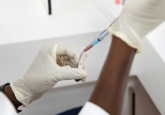One in ten colorectal cancer patients are waiting over a year to start treatment

A study published recently in the BMJ Open has revealed significant differences internationally in the time before beginning treatment in colorectal cancer (CRC) patients. The team of researchers, from the International Cancer Benchmarking Partnership, examined questionnaires from 2866 patients and their doctors and medical records of diagnoses between 2013 and 2015.
Patients aged 40 or older with a first diagnosis of CRC were recruited from Victoria (Australia), Manitoba (Canada), Ontario (Canada), Denmark, Norway, Sweden, England (UK), Scotland (UK), Northern Ireland (UK) and Wales (UK).
The data revealed disparity in the time between symptom onset and the commencement of treatment between countries, and significant differences in the length of every stage therein.
For example, patients in Wales delayed contacting their doctor after noticing a symptom the longest, and additionally had the longest wait between diagnosis and starting chemotherapy. This wait was over twice the time for patients in Denmark and Victoria.
Additionally, patients in Wales experienced the longest time between the onset of noticeable symptoms and the beginning of treatment at 168 days, compared with the best performing country, Denmark, with an average of 77 days.
The research team also discovered that 10% of patients in Northern Ireland, Wales and England waited a year or longer between first noticing symptoms and beginning treatment.
Furthermore, the researchers discovered significant differences in the length of the diagnosis process between countries. Patients in Manitoba waited over twice the length of time than patients in Denmark and Victoria.
Sara Hiom (Cancer Research, London, UK) commented: “This work shows that the UK has a major task ahead to improve how promptly bowel cancer patients receive treatment. There is much we can learn from other countries, from addressing barriers to encourage people to visit the GP if they notice unusual changes to ensuring they have the swiftest possible path from referral to diagnosis and treatment.”
As a result of this study, researchers are looking to further explore the international differences brought to the fore by this investigation and how these differences may affect survival rate.
Lead author David Weller (University of Edinburgh, UK) explained: “The significant variation between participating countries in the time it took for patients to begin treatment shows there is real potential to speed up this process. Further research is needed to understand these differences and build on what is working well in other countries to give patients in the UK the best possible care.”
Sources: Weller D et al. Diagnostic routes and time intervals for patients with colorectal cancer in 10 international jurisdictions; findings from a cross-sectional study from the International Cancer Benchmarking Partnership (ICBP). BMJ Open doi: 10.1136/bmjopen-2018-023870 (2018); www.cancerresearchuk.org/about-us/cancer-news/press-release/2018-11-28-10-of-bowel-cancer-patients-can-wait-more-than-a-year-to-start-treatment





